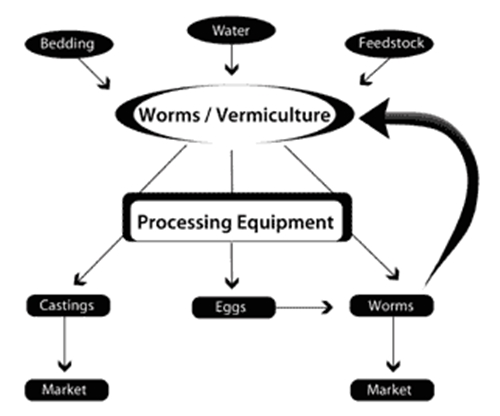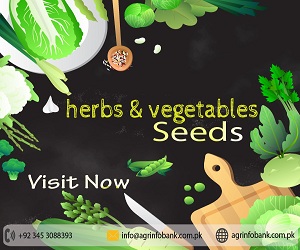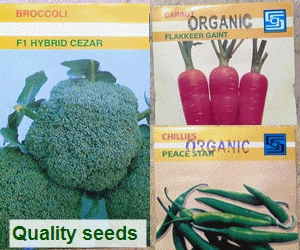1. DISCLAIMER
This information memorandum is to introduce the subject matter and provide a general idea and information on the subject. Although, the material included in this document is based on data/ information generated from experiments and field testing by a team of relevant scientists; however, it is based upon certain assumptions which may differ from case to case. The contained information may vary due to any change in any of the concerned factors, and the actual results may differ accordingly from the presented information. The PARC and its employees do not assume any liability for any financial or other loss resulting from this memorandum in consequence of under taking this activity. The prospective user of this memorandum is encouraged to contact qualified consultant/technical expert, especially designated focal person(s) of this enterprise for reaching to an informed decision.
2. PURPOSE OF THE DOCUMENT
The objective of the pre-feasibility study is primarily to facilitate potential entrepreneurs in project identification for investment. The project pre-feasibility may form the basis of an important investment decision and in order to serve this objective, the document/ study covers various aspects of project concept development, start-up, and production, marketing, finance and business management. The document also provides sectoral information, brief on government policies and international scenario, which have some bearing on the project itself. The purpose of this document is to facilitate potential investors in Vermicompost Production, Packaging & Marketing business by providing them a holistic as well as a micro view of business with the hope that such information as provided herein will help the potential investors in crucial investment decisions. The need to come up with pre-feasibility reports for undocumented or minimally documented sectors attains greater imminence as the research that precedes such reports reveal certain thumbs of rules; best practices developed by existing enterprises by trial and error, and certain industrial norms that become a guiding source regarding various aspects of business set-up and it’s successful management. Apart from carefully studying the whole document one must consider critical aspects provided later on, which form basis of any Investment Decision.
3. INTRODUCTION TO SCHEME
Prime Minister’s Youth Business Loan Programme, for young entrepreneurs, with an allocated budget of Rs. 5.0 Billion for the year 2013-14, is designed to provide subsidized financing at 8% mark-up per annum for one hundred thousand (100,000)beneficiaries, through designated financial institutions, initially through National Bank of Pakistan (NBP) and First Women Bank Ltd. (FWBL). Loans from Rs. 0.1 million to Rs. 2.0 million with tenure up to 8 years inclusive of 1 year grace period, and a debt: equity of 90: 10 will be disbursed to SME beneficiaries across Pakistan, covering; Punjab, Sindh, Khyber Pakhtunkhwa, Balochistan, Gilgit, Baltistan, Azad Jammu & Kashmir and Federally Administered Tribal Areas (FATA).
4. EXECUTIVE SUMMARY
Vermicomposting is as a bio-oxidative process in which earthworms interact intensively with microorganisms and other fauna within the decomposer community, accelerating the stabilization of organic matter and modifying its physical and biochemical properties. The action of the earthworms in this process is physical or mechanical. Physical participation in degrading organic substrates results in fragmentation, thereby increasing the surface area of action, turnover and aeration. On the other hand, biochemical changes in the degradation of organic matter are carried out by microorganisms through enzymatic digestion, enrichment by nitrogen excrement and transport of inorganic and organic materials.
The selection of suitable earthworm species for Vermicomposting is an important step of the overall process. Out of the thousands of species of earthworms, only a few are suitable for vermicomposting of organic wastes. The epigeic species of earthworms are widely used for vermicomposting of different organic wastes. Eisenia fetida is the most widely used earthworm species for vermicomposting due to its well-established potential for the vermicomposting of compostable organic materials such as agricultural wastes and animal manures.
In Pakistan, huge amount of organic wastes, e.g., municipal solid waste, cattle manure and poultry manure etc., are available for composting as a substitute for chemical fertilizers.
Animal wastes are important resources that are used to supplement organic matters and improve soil conditions. Average-size cattle produce 4 to 6 tonnes of fresh dung per year. In Pakistan and some other developing nations, a significant fraction of cattle dung is used as cooking and heating fuel after making its bricks (Figure 1) However, burning of dung cakes causes serious health and environmental problems. The burning of animal dung for cooking results in higher indoor particle concentrations. Smoke from animal dung-based cooking stoves contains carbon monoxide, fine particulates, nitrogen dioxide and hydrocarbons, all at concentrations far in excess of what is considered unsafe in outdoor air. Long-term exposure to airborne particulate matter has been associated with increased rates of acute respiratory infections, chronic obstructive lung disease and cancer (USEPA 2008). On the other hand, once the dung is burnt, the nutrients present in it are lost forever. Another important use of cattle dung is its conversion into compost to be used as manure in agricultural fields. For this purpose, cattle dung is heaped in the open and allowed to degrade naturally without any amendments. This process takes 6 to 9 months, and still dung is not stabilized which may attract termites in the fields after its application. Further, this method is a major cause of odor and fly problems in rural areas. Vermicomposting merely controls the conditions so that materials decompose faster. Vermicomposting and its use offers several potential benefits including improved manure handling, enhanced soil tilth and fertility, and reduced environmental risk. With good management, it produces a minimum of odors. It is quite different from the original materials that it was derived from. It is free of unpleasant odors, is easy to handle, and can be stored for long time. It has a variety of uses which make it a valuable and saleable product. For all of these reasons, vermicomposting is attracting the attention of farmers, waste-generators, public officials, and environmentalists. When applied to cropland, compost adds organic matter, improves soil structure, reduces fertilizer requirements, and reduces the potential for soil erosion. One of the most attractive features of vermicomposting is that there is a market for the product. Potential buyers include home gardeners, landscapers, vegetable farmers, turf growers, operators of golf courses, and ornamental crop growers. The price of compost varies considerably because it is often viewed as a waste product. A bulk vermicompost price ranges Rs. 10 -20 per kg and average about Rs.15 per kg. The price depends on the local market, compost quality, and the raw materials used.
The project of vermicompost production, processing, packaging and marketing envisages the farming of collection of raw material, composting followed by packaging and then distribution or supply directly to the farmers, commercial nursery growers market. The proposed business will start with 500 T/annum initially and can be up-scaled according to the availability of raw material.
Composting production units are proposed to be located in areas where enough (500 tonnes) degrade waste is available in urban and rural areas. The composting can be done in all zones of Pakistan and this technology has huge potential in intensive farming agriculture areas of the country. Installed capacity 500 T/cycle, initial utilization is 50 %. In first year total production of 5000 bags each containing 25 kg of compost for one cycle. Total Cost Estimate is Rs. 1,780,000 for first year with fixed investment Rs. 1,210,000 and working capital Rs. 570,000. From second year two cycles can be produced and 10000 bags will be obtained from two cycles. Given the cost assumptions IRR and payback are 87 % and 2.69 years respectively. Whereas NPV of this project is 19,323,524.
The most critical considerations or factors for success of the project are;
- Production of quality product according to the international standards and for marketing needs registration with Government of Punjab.
- Networking of compost suppliers/dealers from all over the country would be necessary to meet any requirement or shortfall.
5. BRIEF DESCRIPTION OF PROJECT
Organic solid waste management by employing earthworms has multifarious role to play in a developing country like Pakistan. Hundreds of tonnes of biodegradable organic wastes are being generated in cities and towns in the country, creating disposal problems. Firstly, this waste can be converted into valuable compost by applying vermicomposting technology. This approach reduces pollution and provides a valuable substitute for chemical fertilizers. Secondly, the manure is produced in a shorter duration of time of 16 weeks and is fully matured, homogenous matter. Thirdly, the programme provides job opportunities for the unskilled labor force. Finally, it is the best way of guarding the environment. Vermicompost (compost produced by the activity of selected species of earthworms) has been adjudged as the best source of organic amendments to soil. Using vermicompost can fulfill the requirements for organically grown products.
This process is profitable at any scale of operation, provided proper process parameters are maintained. Municipal Corporations and Councils are encouraging entrepreneurs by providing required land and the waste matter from all sources free of cost near the waste dumping sites. This scheme gives details of making compost from bio-degradable organic waste using vermin-castings. It is assumed that the land and the waste material are free of cost to the entrepreneurs. This unit will be profitable even if the land is taken on lease.
Prospect for Vermicomposting to be used for soil amendment/ conditioner and potting material for commercial nurseries and horticultural crops (vegetables growing in tunnel farming). All processing facility will be at one place
Technology: Vermicomposting production and processing required tools and equipments/machinery for collection (loading & unloading), pre-decomposition, shredding, mixing, drying, sieving and packaging. The proposed unit requires basic composting equipments (list attached). Working hours per day 8 hours. Working days in a year 360 days.
Project components:
There are four key steps during the typical composting process. These include: feedstock pre-processing where the feedstock is treated and blended to achieve a mix with desired overall characteristics, the active composting important for pathogen kill, the curing necessary to obtain a mature and stable product, and the post-processing required to meet quality criteria for sale and distribution of the product.
Required compost plant facilities
Compost plants mainly consist of the following facilities;
(a) Receiving area & Material Recovery Facility (MRF)
(b) Windrow decomposing facility
(c) Compost maturating facility
(d) Sieving and storage facility
(e) Landfill site for residue
(f) Site office
(g) Workers restroom
(h) Security facility
(i) Leachate treatment facility
(j) Fence
(k) Gate
(l) Buffer zone
(m) Access road
Production Capacity per cycle for first year
- Plant capacity = 5000 bags per cycle
- Capacity utilization = 50 %
- Annual sales of finished product = 10000 bags (Per bag 25 kg)
- Value/bag Rs. = 375/bag
Location: Suburbs of cities and villages near dumping site can be ideal locations for practice of composting on a small to medium scale, from the point of view of availability of raw material and marketing of the produce. Unit may also be located in areas with concentration of fruits and vegetables markets. The proposed business can be done in all villages, cities / Towns of Pakistan.
Target Market: In addition to local markets enormous export market to other countries. Wholesale customers include:
- Farmers
- Gardeners
- Nurseries
- Landscapers
- People with related businesses (who need worms, compost or castings)
- Businesses who need systems designed
- Schools, Collage- private, public and charter
Employment Generation: The proposed project will provide direct employment to 10 people. Financial analysis shows the unit shall be profitable from the very first year of operation.
6. CRITICAL FACTORS
Individuals considering entering the composting industry must carefully consider the following factors:
- Networking with the farmers of livestock (sheep, goat, cattle and poultry) union and Municipal Corporation for availability of raw material.
- Consistent supply of raw material and quality/quantity of compost at production facility.
- Availability of skilled manpower
- Wholesaler contracts
- Network of dealers and direct access to the farmers, NGOs and community organization and commercial nursery growers in the country.
7. INSTALLED AND OPERATIONAL CAPACITIES
For this project it is assumed that the production will start from plant production capacity of 500 T/cycle and its utilization capacity of 50%. The initial total production would be 125 tons per cycle based on the above mentioned assumptions.
Vermicomposting is considered to be a small and medium scale business in Pakistan. There are three types of products known in the market, one is vermicompost (soil amendment/ conditioner), vermiwash liquid biofertilizer (foliar spary) and wormicultures (Worms) can be sold as live product. Following areas have been identified where significant opportunities for Vermicomposting:
- Federal Area/ tertiary
- FATA, Gilgit Baltistan
- Azad Jummu & Kashmir (Muzarabad, Mirpur, Rawalakot etc.)
- Punjab
- Khyber Pakhtonkhuwa
- Sindh
Organic solid waste management by employing earthworms has multifarious role to play in a developing country like Pakistan. Hundreds of tonnes of biodegradable organic wastes are being generated in cities and towns in the country, creating disposal problems. This waste can be converted into valuable compost by applying Vermicomposting technology. While looking at major bio-products markets and demand, all major cities such as Karachi, Lahore, Faisalabad and Rawalpindi etc. are attractive local markets. It may be exported to the other countries Middle East, Saudi Arabia, Turkey, African countries and Russian States etc. Vermicompost can be preparation with any types of biodegradable wastes e.g:
- Crop residues.
- Weed biomass
- Vegetable waste
- Leaf litter
- Hotel refuse
- Waste from agro-industries
- Biodegradable portion of urban and rural wastes
10. PRODUCTION PROCESS FLOW
| Phase 1 | Processing involving collection of wastes, shredding, mechanical separation of the metal, glass and ceramics and storage of organic wastes. |
| Phase 2 | Pre digestion of organic waste for twenty days by heaping the material along with cattle dung slurry. This process partially digests the material and fit for earthworm consumption. Cattle dung and biogas slurry may be used after drying. Wet dung should not be used for vermicompost production. |
| Phase 3 | Preparation of earthworm bed. A concrete base is required to put the waste for vermicompost preparation. Loose soil will allow the worms to go into soil and also while watering; all the dissolvable nutrients go into the soil along with water. |
| Phase 4 | Collection of earthworm after vermicompost collection. Sieving the composted material to separate fully composted material. The partially composted material will be again put into vermicompost bed. |
| Phase 5 | Storing the vermicompost in proper place to maintain moisture and allow the beneficial microorganisms to grow. |
Phases of vermicomposting
Vermicompost is nothing but the excreta of earthworms, which is rich in humus and nutrients. We can rear earthworms artificially in a brick tank or near the stem / trunk of trees (especially horticultural trees). By feeding these earthworms with biomass and watching properly the food (bio-mass) of earthworms, we can produce the required quantities of vermicompost.

. PROJECT COST SUMMARY
A detailed financial model has been developed to analyze the commercial viability of Vermicomposting, Packaging & Marketing under the ‘Prime Minister’s Youth Business Loan’ program. Various cost and revenue related assumptions along with results of the analysis are outlined in this section.
11.1 Project Economics
All the figures in this financial model have been calculated for vermin-compost annual production of 5000 bags of vermin-compost each containing 25 kgs. The following table shows internal rate of return and payback period.
Table 1 – Project Economics
| Description | Details |
| Internal Rate of Return (IRR) | 87 % |
| Payback Period (yrs) | 1.72 |
| Net Present Value (NPV) | Rs. 19,323,523.42 |
Returns on the scheme and its profitability are highly dependent on quality of vermin-compost suitable location, good farming practices and availability of trained staff. The project will not be able to cover the potential demand of consumers and recover payments, if these factors are not efficiently managed and will also lead to increased operating cost.
11.2 Project Financing
Following table provides details of the equity required and variables related to bank loan:
Table 2 – Project Financing
| Description | Details |
| Total Equity (10%) | Rs.178,000 |
| Bank Loan (90 %) | Rs. 1,602,000 |
| Markup to the Borrower (%age/annum) | 8% |
| Tenure of the Loan (Years) | 08 |
| Grace Period (Years) | 01 |
11.3 Project Cost
Following is the total project cost proposed for the business of vermin compost.
Table 3: Project Investment
| Capital Investment | Amount Rs. |
| Capital Cost (one time investment) | 1,210,000 |
| Total working capital | 570,000 |
| Total Project cost | 1,780,000 |
11.4 Machinery and Equipment
Following table provides list of machinery and equipment required for production and packaging of vermin-compost.
Table 4: Machinery and Equipment
| Description | Quantity | Amount Rs. |
| Power driven chaff cutter | 1 | 30,000 |
| Weighing Machine Platform type | 1 | 10,000 |
| Water Pump and pipes for water sprinkling | 1+3 | 140,000 |
| Tools & Implements | 4 | 20,000 |
| Pre-operative Expenses (installation and operational cost of machines) | 10,000 | |
| Total | 210,000 |
11.5 Furniture and Fixture
Following table provides list of Furniture and Fixture required:
Table 5: Furniture & Fixture and its cost
| Description | Unit Price | |
| Furniture and Fixture | 50,000/- | 50,000/- |
| Total | 50,000/- |
11.6 One Time Earthworm Cost
The earthworm will be put for one time and they will keep on multiplying for rest of the operation.
Table 6: One Time Earthworm cost
| Description | Unit Price | |
| Earthworm Investment | 30,000/ kg | 150,000/- |
| Total | 150,000/- |
11.7 Raw Material Requirements
Table 7: Cost of Raw material/ cycle
| Description | Quantity | Value Rs. |
| Bio -degradable waste provided by vegetable and fruit market yard and municipal market | 500 Tonnes (Rs. 150/T) | 75,000 |
| Cow dung Manure | 125 Tonnes (Rs 200/t) | 25,000 |
| Total | 100,000 |
11.8 Human Resource Requirement
Table 8: Human Resource Requirement for six months first year
| Designation | No | @ Rs. | Value Rs. |
| Manager | 1 | 20,000/month | 120,000 |
| Helper | 2 | 10,000 each/month | 120,000 |
| Total | 240,000 |
The table above provides details of human resource required to run a vermicomposting Production, Packaging and Marketing Company. Salaries of all employees are estimated to increase 10% annually.
11.9 Overhead expenses for 6 months
Table 9: Overhead Expenses for first year
| Description | Amount |
| fuel expenses | 50,000 |
| packing material | 20,000 |
| Promotion expenses | 50,000 |
| Tractor and trolly rent | 50,000 |
| communication | 10,000 |
| Utility bills | 30,000 |
| Cash in hand | 20,000 |
| Total | 230,000 |
11.10 Space Requirement
Land will be taken on lease for the period of 10 years. And number of pits and sheds constructed on the piece of 1 acre land is 50.
Table 10: Space Requirement
| Description | No | Total cost Rs. |
| Land (Leased @ 40000/annum) | 1 Acre | 400,000 |
| Construction of pits & sheds | 50 Pits | 400,000 |
| Total | 8,00,000 | |
11.11 Revenue Generation
Table 11: Revenue Generation for first year
| Product | Unit | Sales Price | First Year |
| (Bags) | (Rs./Unit) @ Rs.15/- /Kg | Production (Rs) | |
| 25 kg | 5000 | 375 | 1,875,000 |
12. CONTACTS – SUPPLIERS, EXPERTS / CONSULTANTS
There are many local suppliers of packaging machinery working at Lahore, Faisalabad, Gujranwala, Karachi and other cities who could be contacted for obtaining packaging machinery; however, during the course of study for this pre-feasibility we have contacted the following local manufacturer:
Contacts for Vermicomposting from outside country;
D. Vidya Sagar
Address:# 532, ii main road,Gandhi Nagar,KOLAR,Karnataka state,INDIA,Postal Code – – 563 101.
Email-ID:skgsangha@gmail.com
info@skgsangha.org
Contact-No: office : +91-8152-225370 Mobile:+91-9243436266 :+91-9844160038
FAX: +91 8152224146
Online contact with Vermi-technology Unlimited at
Vermicomposting/Vermi-culturing Technology Consultant and Trainer
- Dr. Arshad Ali
Director
Land Resources Research Institute (LRRI),
National Agriculture Research Centre (NARC)
Park Road, Islamabad
Tel: +92-51 9255060, +92-51-8443124
Cell: 03335966626
- Dr. Tariq Sultan
Principal Scientific Officer
Soil Biology & Biochemistry Program,
Land Resources Research Institute (LRRI),
National Agriculture Research Centre (NARC)
Park Road, Islamabad
Tel: +92-51 9255060, +92-51-8443181
Cell: 0343-8559901
- Syed Ishtiaq Hyder
Scientific Officer
Soil Biology & Biochemistry Program,
Land Resources Research Institute (LRRI),
National Agriculture Research Centre (NARC)
Park Road, Islamabad
Cell: 03325323177
- Mr. Najmul Hassan
Research Assistant (Vermicompost Expert)
Soil Biology & Biochemistry Program,
Land Resources Research Institute (LRRI),
National Agriculture Research Centre (NARC)
Park Road, Islamabad
Tel: +92-51 9255060, +92-51-8443181, 0300-6791195









